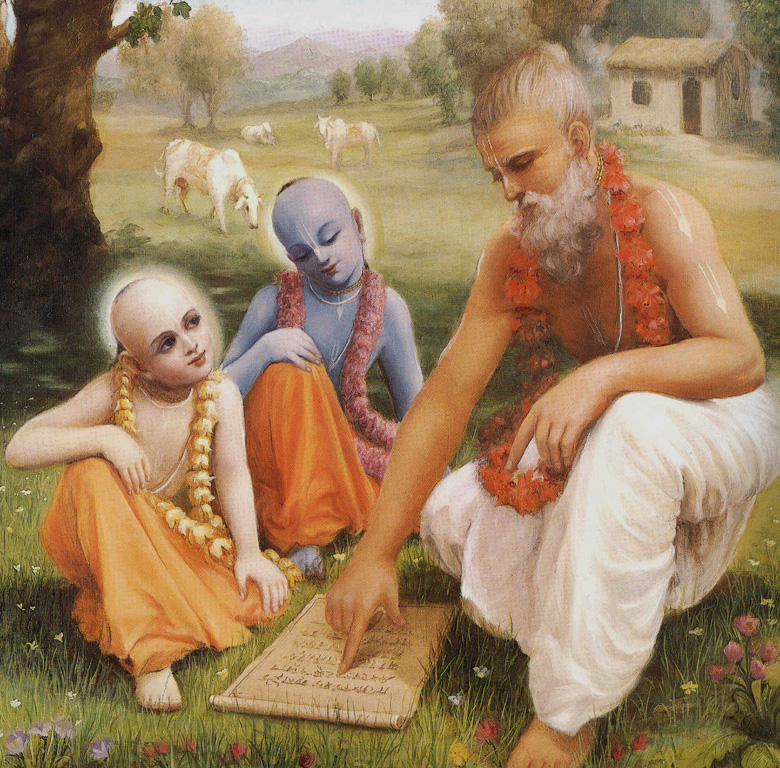Question: Please help me understand the term ‘sarva papebhyo mokshayishyami’ (BG 18.66).
My understanding is that a conditioned living entity accrues sins and material piety when not engaged in devotional service. When Krishna says He or His bonafide representative delivers from sinful reactions, what happens to the material piety accrued? Does sinful reaction include both sins and material piety? Wouldn’t the living entity be still entangled due to material piety and thus not relieved from material bondage? Or does Krishna take away both sins and material piety when a living entity surrenders unto Him?
The purport of this verse describes “…at once he becomes freed from all contamination of material nature…”. Does this statement include both sins and material piety accrued?
Answer by Romapada Swami: Yes, a surrendered soul is delivered from the karmic bondage of both sins and material piety. Such a devotee’s life is no longer under the jurisdiction of karma.
Krishna confirms this in Chapter 9,
subhasubha-phalair evam
moksyase karma-bandhanaih:
“In this way you will be freed from bondage to work and its auspicious and
inauspicious results.” (BG 9.28)
Srila Prabhupada also explains this in his purport to BG 10.3, concerning what it means to become free from sins (sarva-papaih-pramucyate):
“Anything done under the direction of Krishna is transcendental. It cannot be contaminated by material reactions, which may be auspicious or inauspicious. The conception that there are things auspicious and inauspicious in the material world is more or less a mental concoction because there is nothing auspicious in the material world. Everything is inauspicious because the very material nature is inauspicious. We simply imagine it to be auspicious. Real auspiciousness depends on activities in Krishna consciousness in full devotion and service.” (BG 10.3 p)
Thus, so-called material piety that blocks one from understanding and serving Krishna also falls under the category, in a broader sense of the term, of ‘papebhya’; Krishna relieves His surrendered devotee of the karmic burden of such material piety.
Krishna also says that for those who serve Him with exclusive devotion, He carries what they lack and preserves what they have (BG 9.22). Thus, whatever happens in a surrendered devotee’s life is personally orchestrated by Krishna via His internal potency. Sometimes it seems that a devotee is getting reactions to his past action, either good or bad. But this is actually Krishna’s direct and personal reciprocation, not through the agency of His material energy.
A devotee also accepts it as such: he never thinks himself as being beyond all reactions, rather he humbly thinks “Thanks to my past misdeeds I should suffer far, far greater than I am suffering now. But by the mercy of the Supreme Lord I am not getting all the punishment I am due. I am just getting a little, by the mercy of the Supreme Personality of Godhead.”
Krishna may give a “token reaction” for their complete purification of residual tendencies for fruitive action and for the full maturing of their devotional service. An example is that the devotee’s present material body, which is supposed to be a product of karmic reaction, is still preserved for their further execution of devotional service until they become completely pure — as seen in the example of Narada’s previous life. Another way to understand this is that the so-called material body of a fully-surrendered soul is actually spiritual.
Similarly, Krishna may preserve a devotee’s wealth, but a surrendered devotee no longer sees that wealth as the product of his past good karma. He recognizes it as Krishna’s wealth left in his care to be utilized in the Lord’s service. Thus, his wealth acts spiritually.
One who surrenders to Krishna is not bound by either pious or by sinful reaction.







